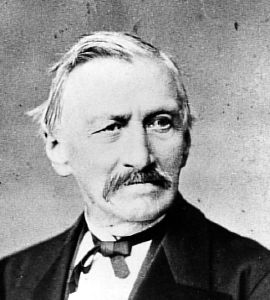|
<<< << -- 2 -- Kelly Ferjutz THE WANDERING TRAVELLER -- >> >>>

Dr Buller appreciated opera during his high school years, although it was Puccini and Verdi that first captured his attention. Then in grad school at the University of Wisconsin, Madison, he first encountered the Ring Cycle, and realized that Wagner was using Greek tragedy as resource material. That leads to Dr Buller's second talk, Bayreuth as a Symbol, based as it is on the Dionysian Festivals. Wagner intended the attendees at his festival to devote their entire day to attending the opera, and paying attention to what they were seeing and hearing. It was not to be tacked on to the end of a working day, when hearts and ears and eyes and even brains were too tired to be entirely receptive to the performance. Not only would they devote attention to serious works, but -- they'd have to make a special effort to go there.
Visits to Bayreuth and Wahnfried (Wagner's home, finally) impressed the American classicist, especially the variety of books in Wagner's library. 'He studied Buddhism before it was a popular thing to do; he was always inquiring into human development, especially philosophy.' In fact, Wagner intended to write an opera about Buddhism, to be called Die Sieger, or The Victors. Even if he was largely self-taught, it was this classical education that contributes to the splendid marriage between the words and the music in Wagner's operas. 'The connection between the words and the music -- the way he uses words, the alliteration; he had to do it all himself. It's important to know what he read and when he read it.'
Siegfried Wagner and the Epigoni is particularly resonant, dealing as it does with descendants of great figures. Siegfried, of course, was Wagner and Cosima's only son and in the opinion of Dr Buller, a very overlooked composer in his own right.

Gottfried Semper (1803-1879)
|
Harry Mallgrave was drawn to 19th century Germanic architecture, especially because it was a largely undiscovered field. 'German Art History was a new area to explore', he says. His specialty is the noted architect and scholar Gottfried Semper, who was a great friend and ally of Richard Wagner. Semper was also a classicist, and at ten years older than the composer, served as a mentor on architectural matters. In fact, Semper spent three-and-a-half years drawing up the first plans for a theater in Munich in which it was hoped that the entire Ring Cycle would be performed.
Continue >>
Copyright © 3 May 2007
Kelly Ferjutz, Cleveland USA

|

